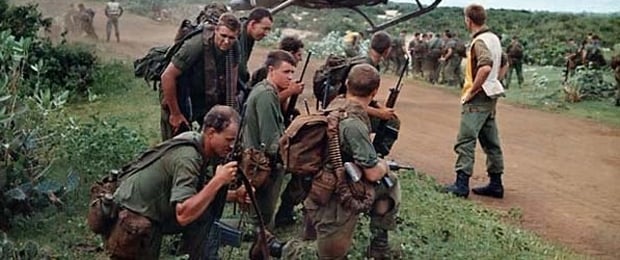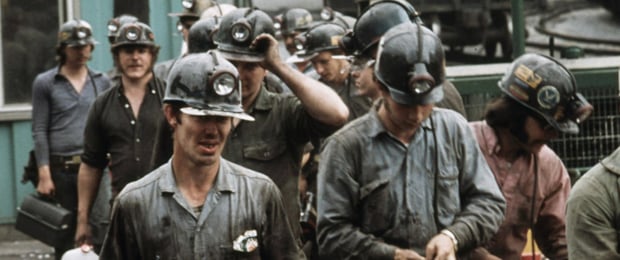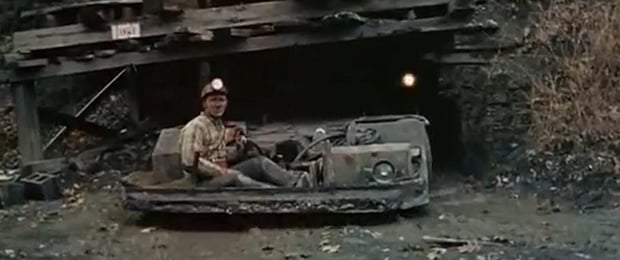The emotional scope opened up by documentary can be absolutely devastating. Here are three extraordinary Oscar-winning documentaries, which, take our word for it, are well worth the detour.
“I see the documentary as one of the last forms of freedom of expression” entrusted to us in 2015 by director Hubert Sauper, to whom we owe, among other things, Darwin’s Nightmare, an extraordinary documentary with the feel of a thriller of abysmal darkness, and nominated for the Oscar for Best Documentary.
Although it naturally differs in form from fictional works, the emotional field opened up by the documentary can be absolutely devastating. Because it addresses subjects sometimes touching on the intimate, questions that deeply shock us and question us, about our relationship to the world, to others and to living things. In this register, we never thought we would be so moved by the moving The Wisdom of the Octopus, rightly Oscar-winning in 2021.
Since 1941, the Academy of Oscars has awarded a documentary work each year. Some are very well known to the general public: Bowling For Columbine by Michael Moore in 2002 for example, or The Emperor’s March, in 2005.
But there are Oscar-winning documentaries that are much, much lesser known. At least with us. And which, take our word for it, is more than worth the detour. Here are three.
The Cove – the bay of shame
“I wish these films didn’t need to be made” sadly declared Luc Besson, who came to present the documentary The Cove – the Bay of Shame during the Deauville American Film Festival in 2009. The filmmaker has been criticized for many things. But certainly not for having had the lucidity and the courage to distribute in France this terrible and moving – we weigh our words – documentary.
The subject ? After making his name in the 1960s through the series Flipper, former dolphin trainer Ric O’Barry is today a fierce defender of cetaceans. In Taiji, Japan, he is mobilizing against the massacre of several thousand dolphins per year, carried out out of sight. With the Oceanic Preservation Society team, O’Barry sets out to reveal the truth about Taiji to the world…
EuropaCorp Distribution
Covered with awards at various international festivals, notably at Sundance where it won the Audience Prize in 2009, rewarded with the Oscar for Best Documentary in 2010, The Cove – The Bay of Shame is a shocking documentary filmed illegally and with a hidden camera, and at the same time astonishing, moving, intelligent and essential.
It is also the painful fight of a man, Ric O’Barry, the unwilling founder of the dolphin business, who spent the last 35 years of his life fighting against an industry that he initiated.
On the Japanese side, the line has not really changed. Wakayama Prefecture published an official response following the release of the documentary, unsurprisingly condemning it. The hunt therefore always remains open for 6 months, and there is no question of putting an end to this 400-year-old tradition, as the mayor of Taiji, Kazukata Sangen, declared in January 2014.
And when the United States Ambassador to Japan at the time, Caroline Kennedy (daughter of JFK), was publicly moved by it in a official tweetthis was sharply returned to its strings within Japanese social networks.
In 2018, Japanese filmmaker Megumi Sasaki made a documentary about the aftermath of The Cove, entitled A Whale of a Tale. The opportunity to verify that, years after the Oscar-winning shock film, the wound remained raw in Taiji. While noting that the consumption of whale and dolphin flesh is largely ignored by the younger generation, to the point of gradually dying out. Except among the diehards and the supporters of a centuries-old tradition…
Hearts & Minds
“We must be ready to fight in Vietnam. But final victory will depend on the hearts and minds of the men who live there.”. These are the words of a very famous speech given by American President Lyndon B. Johnson on May 4, 1965. “Win the hearts and minds of men”a formula that he even hammered out no less than 28 times in his speeches, between 1964 and 1968.
It is also the name chosen by filmmaker Peter Davis for his extraordinary documentary, one of the most important ever made, which had an immense emotional and political impact: Hearts & Minds.
Here is the trailer…
The Vietnam War occurred at a time when Hollywood conventions were breaking down and the government, wanting to keep it within a limited framework, was careful not to mobilize filmmakers to glorify an increasingly unpopular conflict.
Hearts & Minds was one of the very first films to publicly point out the actions – secret or not – of the foreign policy of the United States, showing “in the flesh” the after-effects of the Vietnam War. This is because at the time the documentary was made, the United States was still in the middle of secret negotiations with North Vietnam to try to put an end to the conflict, negotiations which would lead to the Paris Accords in 1973.
Screened at the Cannes Film Festival in 1974, it received a very favorable reception. But its distribution in the United States posed a problem. Faced with its controversial subject, the film’s distributor threw in the towel, while the risks of litigation increased, further delaying the release of the film on American territory. Peter Davis finally managed to find a new distributor, and the film was released in 1975, some time before the Oscar ceremony, from where it left with the Oscar for Best Documentary.
The announcement of the award was criticized by some, judging the film anti-American, while others applauded. Frank Sinatra, who was master of ceremonies for the Oscars in 1976, publicly denounced the documentary and the award he received.

BBS Productions
Combining filmed images of combat, archive footage and testimonies from veterans and anti-war activists, political figures but also leading actors such as General Westmoreland, commander of American military operations in the Vietnam War between 1964 and 1968, Hearts & Minds is a devastating and moving x-ray of a nation plagued by doubt and torn by this conflict, whose wounds have never healed.
The opportunity also to launch a vibrant appeal to a video editor; this masterpiece of documentary has unfortunately never had the honor of being released on DVD here, even less on Blu-ray. In any case, there remains an enormous amount of work to evangelize around the film: it only has four unfortunate notes on its file…
Harlan County, USA
The brutal and bloody story of the struggle of American miners for their rights has often been evoked in American fiction, and has sometimes, fortunately, given us very great films, and even masterpieces. Traitor on Order by Martin Ritt for example, in which Sean Connery finds nothing less than one of the best roles of his career.
Or the Battle of Matewan, a terrible prelude which led to a general uprising of miners in the Virginia region in 1921; year during which an army of 10,000 of them opposed 3,000 lawyers, strikebreakers and soldiers. An event that was the largest workers’ uprising in United States History, and the largest armed uprising since the Civil War.

Cabin Creek Films
As for documentaries, the terrible living conditions of minors have also been widely discussed. The most famous of all is the work of a woman, an immense director who won two Oscars, trained at the school of direct cinema : Barbara Kopple.
At barely 28 years old, she signed one of the greatest documentaries of the 20th century: Harlan County, USA, released in 1976. For more than a year, she followed the 180 coal miners of Brookside, in Harlan County located in Kentucky, launched in 1972-1973 in a relentlessly harsh strike to fight for their rights against the Duke Power Company.
Here is the trailer…
Kopple and his team spent years with the families depicted in the film, documenting the struggles they face as they strike for safer working conditions, decent wages, and ultimately their simple right to dignity: some families lived in slums without even running water…
Nothing is spared, between the testimonies of miners suffering from silicosis, caused by deposits of coal dust in the lungs, the entry of women into the struggle, the strike breakers and the brutal police raids, the exchanges of gunshots too. It is a very painful and proud page in the history of the struggle of American miners which is being written before our eyes.
As an echo also to the terrible Harlan County Warwhich occurred in this same region, from 1931 to 1939, which already pitted coal industry miners against their operators and local authorities, between a series of skirmishes, executions, and bomb attacks.

Cabin Creek Films
Rocked by a fantastic soundtrack, featuring legendary country and bluegrass singers Hazel Dickens, Merle Travis, Sarah Gunning and Florence Reece, Harlan County, USA is an exceptional and moving documentary, committed and visceral punchy cinema.
If the work is largely part of the cinematographic heritage across the Atlantic, we are sadly surprised that such a masterpiece of the genre has not yet even had the honors of a physical release here, not even on DVD.
